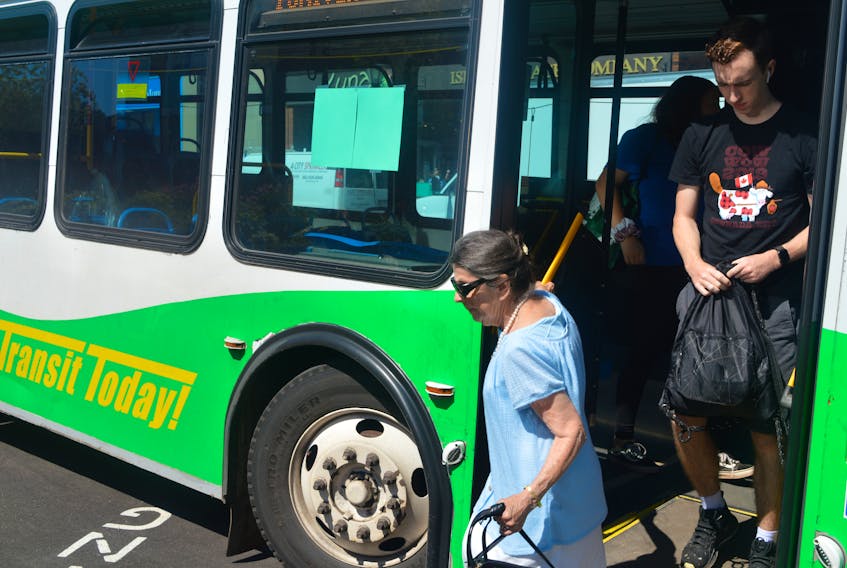Barbara Dylla
Guest opinion
Public transportation is the most sustainable and equitable form of transportation that exists. Richard A. White, president and CEO of American Public Transportation Association, observed that public transportation is the original “shared-economy” form of transportation.
The advantages of riding a bus are many. It provides independence to people of all ages and mobility to people living with a disability, it is inexpensive (or free in many cities nowadays), it is healthy because the user walks or cycles to/from the bus stop and less stressful than driving.
A lack of public transportation can have a disproportionate impact on working and low-income individuals and immigrants. According to an article in The Atlantic, “Access to just about everything associated with upward mobility and economic progress — jobs, quality food and goods (at reasonable prices), health care, and schooling — relies on the ability to get around in an efficient way, and for an affordable price.”
Education and jobs are often cited as the key to overcoming income inequality, while the means to achieving either of these goods remains overlooked.
The automobile’s pervasive presence has been normalized so much that we now find ourselves living and working in places that do more to serve the needs of cars than of people. A well planned public transportation system serves as an effective way to combat automobile dependency. Over-reliance on cars takes a toll on humanity: their emissions increase the likelihood that a healthy person will develop serious diseases, including heart disease or lung cancer, later in life, causing a similar number of premature deaths as traffic collisions. Public transit tends to produce less pollution per passenger-kilometre compared to personal motor vehicles. It is a climate change mitigation opportunity that has been shown to decrease air pollution and greenhouse gas emissions.
Using public transportation is far more affordable than owning and operating a vehicle. A car costs between $8,600 and $13,000 a year, including insurance, gas, maintenance, tires, and depreciation. A T3 Transit monthly pass currently costs $58.50, or $702 a year. Who wouldn’t want to save at least $8,000 a year, or put that money towards better housing, healthy food choices, or education?
A publicly owned, managed, and operated transit system is usually cheaper, more likely to provide good service, and is more accountable to riders than privately run transit. It is the great societal equalizer, granting everyone universal access to transportation. It’s a known fact that mass transportation makes cities more just, environmentally sustainable and economically vibrant.
On P.E.I., a public transit system would have to include the unique needs of rural and small-town residents. They, just as much as urban residents, have a right to mobility and a “right to the city” (slogan coined by Henri Lefebvre).
It is time for P.E.I.’s political leaders to make a commitment to create car-free streets and spaces in our cities and towns, to de-prioritize the automobile in their transportation funding allocations, to charge drivers the full cost of their bad habit, and to use the revenue to fund not only a public transit system, but also infrastructure improvements for walking and cycling.
Barbara Dylla of Charlottetown has submitted this article through the P.E.I. Advisory Council on the Status of Women and the 10 Days for Transit initiative.









